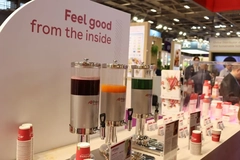Abbott Initiates Clinical Study to Evaluate Use of RX Herculink Elite Renal Stent System for the Treatment of Renal Artery Stenosis

In patients who have uncontrolled high blood pressure (hypertension) without apparent cause, renal artery stenosis is often discovered as the culprit during clinical investigation.
27/09/07 Abbott announced enrollment of the first patient in HERCULES (Herculink Elite Cobalt Chromium Renal Stent Trial to Demonstrate Efficacy and Safety), a U.S. clinical trial designed to evaluate the safety and effectiveness of the investigational RX Herculink Elite Renal Stent System to treat patients with renal artery stenosis (RAS), a condition characterized by fatty plaque buildup in the kidney arteries that can lead to high blood pressure. The first implant was performed by Joaquin Martinez de Arraras, M.D., FACC, president of Amarillo Heart Clinical Research Institute, Inc. in Amarillo, Texas.
In renal artery stenosis, a buildup of fatty plaque causes narrowing of the renal arteries that lead to the kidneys, organs that filter waste from the blood. In patients who have uncontrolled high blood pressure (hypertension) without apparent cause, renal artery stenosis is often discovered as the culprit during clinical investigation. Renal artery stenosis affects approximately 5 million people in the United States, and occurs most often in men between the ages of 50 and 70. It can lead to poor kidney function, or even kidney failure and dialysis, which is a risk factor for cardiovascular disease.
“Many patients with high blood pressure and renal artery stenosis do not respond as well to medication alone as they may to medication plus stenting,” said Dr. Martinez de Arraras. “The goal of the HERCULES trial is to evaluate whether renal artery stenting may reduce vessel renarrowing, thereby potentially reducing other risk factors for cardiovascular disease, such as high blood pressure.”
To qualify for the HERCULES study, patients must have uncontrolled hypertension that is not responding to treatment with at least two blood pressure medications, and must have at least 60 percent stenosis or blockage in a renal artery as measured by visual X-ray angiography.
We are pleased to begin enrollment in a study to examine the safety and effectiveness of stenting for patients with renal artery disease and uncontrolled high blood pressure,” said Chuck Foltz, vice president, Abbott Vascular. “Abbott Vascular has a strong history of innovation and leadership in vascular care, and with the HERCULES trial we can continue to expand our understanding of vascular disease and how to deliver the best treatments for patients.”












